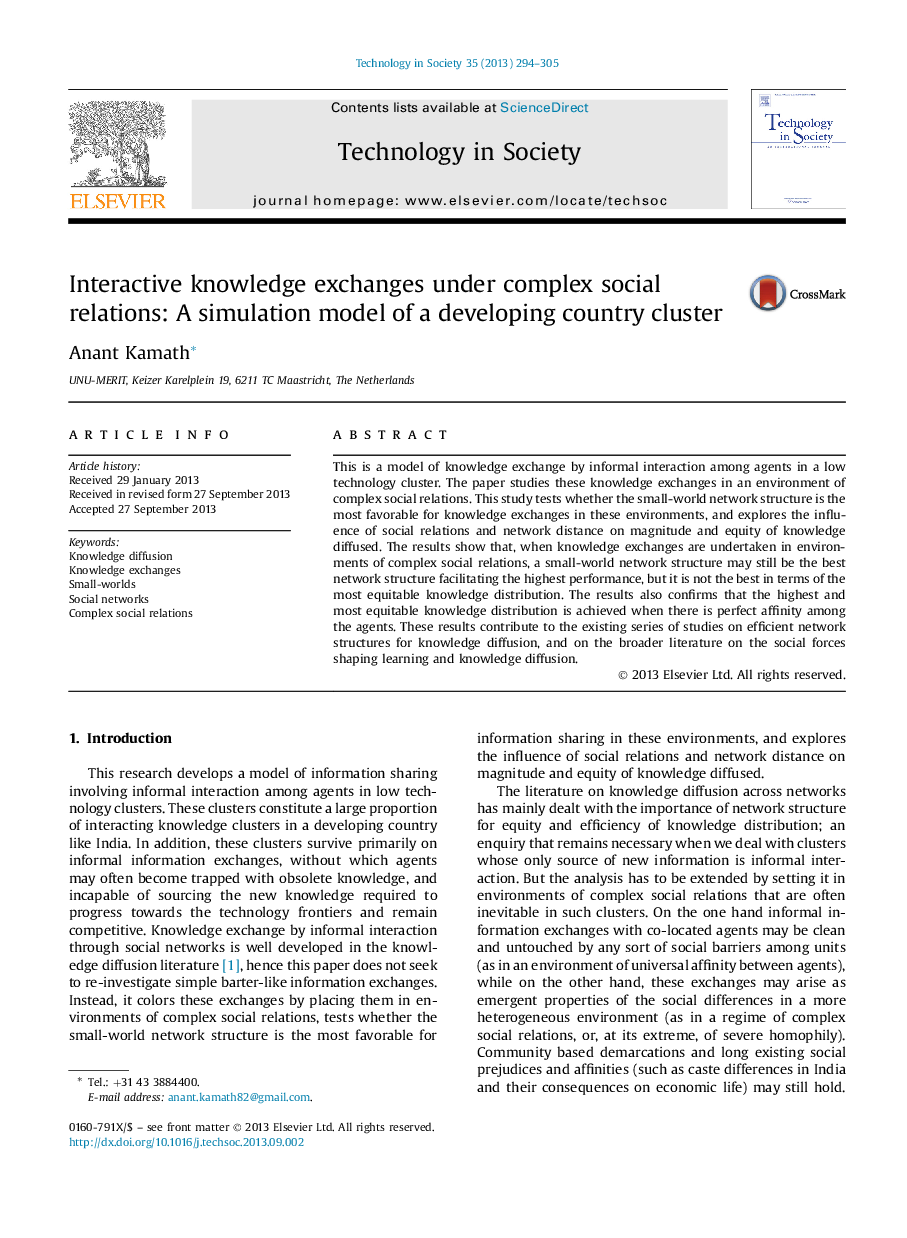| Article ID | Journal | Published Year | Pages | File Type |
|---|---|---|---|---|
| 375202 | Technology in Society | 2013 | 12 Pages |
•Small-world networks may still prevail for performance, but not for equity.•The highest and most equitable knowledge distribution is under perfect affinity.•Cross-social-group interaction occurs most often under high homophily.•Interestingly, strong affinity effects increase performance and equity.•Strong network distance effects have mixed results on performance and equity.
This is a model of knowledge exchange by informal interaction among agents in a low technology cluster. The paper studies these knowledge exchanges in an environment of complex social relations. This study tests whether the small-world network structure is the most favorable for knowledge exchanges in these environments, and explores the influence of social relations and network distance on magnitude and equity of knowledge diffused. The results show that, when knowledge exchanges are undertaken in environments of complex social relations, a small-world network structure may still be the best network structure facilitating the highest performance, but it is not the best in terms of the most equitable knowledge distribution. The results also confirms that the highest and most equitable knowledge distribution is achieved when there is perfect affinity among the agents. These results contribute to the existing series of studies on efficient network structures for knowledge diffusion, and on the broader literature on the social forces shaping learning and knowledge diffusion.
